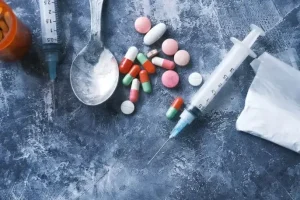
A shot of distilled spirits like vodka is 1.5 ounces and equally 40% alcohol. One 12-ounce can of beer contains about 5% alcohol, and a standard glass of sherry is 3 to 4 ounces and contains about 17% alcohol, according to the NIAAA. Clinical evidence suggests that the most common causes of relapse during this stage are neglecting self-care or not attending self-help groups.

Fund research. Save lives.

Engaging in physical activities, individually or in a group setting, can be a suitable distraction. Physical activities may help curb urges to drink and improve a person’s mood so they are less likely to consume alcohol in the first place. Support groups like Alcoholics Anonymous (AA) offer valuable peer support and shared experiences in a group setting to keep alcohol out of reach. These groups promote accountability, emotional support, and a sense of community, all of which evoke sobriety.
How to Plan an Alcohol Intervention

If you’re having trouble doing the same things you used to do, try new hobbies to fill your time. Join a gym, learn a new skill, or find sober social groups you can enjoy. There’s a reason you’ve reached the decision to quit or cut back. Whether it’s improved relationships, better health, or weight loss, keeping the “why” in sight can help boost your motivation. Whatever your reason to quit drinking, know that you’re doing yourself a favor. Alcohol impacts our sleep, relationships, weight, risk for serious chronic conditions and more.
Avoid temptation
Once the concerns have been voiced, present concrete steps for seeking treatment. Research appropriate treatment facilities and programs beforehand so you can provide options to your loved one. Assure them that they have your support and that seeking help is a positive and courageous first step towards recovery. An intervention can be emotionally charged and challenging to navigate without guidance. Engaging a professional interventionist can help facilitate the discussion, ensuring the process is structured and effective.
Talking about your addiction fosters self-awareness and builds a support system. Openly discussing addiction with trusted individuals or in support groups, such as Alcoholics Anonymous, https://ecosoberhouse.com/ creates a sense of accountability and reduces feelings of isolation. Drugs used for other conditions — like smoking, pain, or epilepsy — also may help with alcohol use disorder. Talk to your doctor to see of one of those might be right for you. Others may want one-on-one therapy for a longer time to deal with issues like anxiety or depression.
- This stage typically starts 3–5 years after you’ve stopped drinking.
- Some people may relapse, or drink alcohol again, to relieve the symptoms.
- Whether you are struggling with addiction, mental health or both, our expert team is here to guide you every step of the way.
- However, the best strategies are those that people respond to the best.
- Will quitting drinking solve all of your problems, in health and in life?
Health Benefits of Cinnamon, According To Experts
You have to acknowledge that you have a drinking problem and it is having a negative effect on your health and social life. Even though you may initially feel energized after a drink, alcohol is a depressant, meaning that ingesting it can slow brain function. Heavy drinking how to overcome alcoholism over time can lead to some pretty severe outcomes, ranging from memory loss to heart disease, liver disease and cancer. You’ve been drawn to this page for a reason – perhaps you’re dependent on alcohol or justwant to change your drinking habits and cut back. We’ve rounded up our top tips to give upalcohol and start on your journey.

Support Groups
Let friends, family members, and co-workers know that you’re trying to stop or cut back on drinking. If they drink, ask them to support your recovery by not doing so in front of you. Always think about thebenefits of quitting alcohol and how they will improve your life. It may also help to think about the negativesthat alcohol causes. With a realistic strategy, support and faith, you can quit drinking and beginalcohol recovery.
Your peers can offer understanding and advice and help keep you accountable. Make meetings a priority – Join a recovery support group, such as Alcoholics Anonymous (AA), and attend meetings regularly. Spending time with people who understand exactly what you’re going through can be very healing. You can also benefit from the shared experiences of the group members and learn what others have done to stay sober. Whether you choose to tackle your alcohol addiction by going to rehab, getting therapy, or taking a self-directed treatment approach, support is essential. Recovering from alcohol addiction or abuse is much easier when you have people you can lean on for encouragement, comfort, and guidance.
- To the best of our knowledge, all content is accurate as of the date posted, though offers contained herein may no longer be available.
- If you are concerned that you or someone you care about has a problem with alcohol there is a lot of help available.
- Perceived social support can play an important part in alcohol use recovery.
- Most people don’t experience any physical symptoms from stopping drinking.
- Setting a goal to stop drinking alcohol requires a person to be aware of their reasons for this behavioral change.
Step 5: Talk About Your Addiction
You might also hold onto a nonalcoholic drink instead, ask a friend to support you in difficult situations or simply exit early if temptation gets too strong, the NIAAA suggests. You’ll get a 100% custom plan, then use daily texts to track your progress and help you stay on target. The challenge of this stage is to essentially develop and maintain healthy life skills that will serve you for a lifetime. An exciting part of this period is that it can lead you to a happier life full of welcomed change and constant improvement. While the abstinence stage of withdrawal causes mostly physical symptoms, post-acute withdrawal is very psychological and emotional.
- Alcohol consumption causes feelings of euphoria and happiness due to the release of dopamine.
- Dealing with alcohol addiction in a family member can be an overwhelming and emotional experience.
- It may even help if you spend time with other nondrinkers for a while so you can support each other.
- And you don’t have to wait until you hit rock bottom; you can make a change at any time.
Eat before and in between drinks.
To solidify this step, individuals need to reflect deeply on the adverse effects of alcohol in their lives and envision the benefits of sobriety. Writing these Halfway house reasons down or sharing them with a trusted person helps to reinforce commitment. Tell trusted family and friends about your plan to quit or cut back on alcohol. When those around you are in the know, it can help them know not to offer you drinks. It may even help if you spend time with other nondrinkers for a while so you can support each other. If your body is used to a certain amount of alcohol, you may feel certain effects when you stop.
